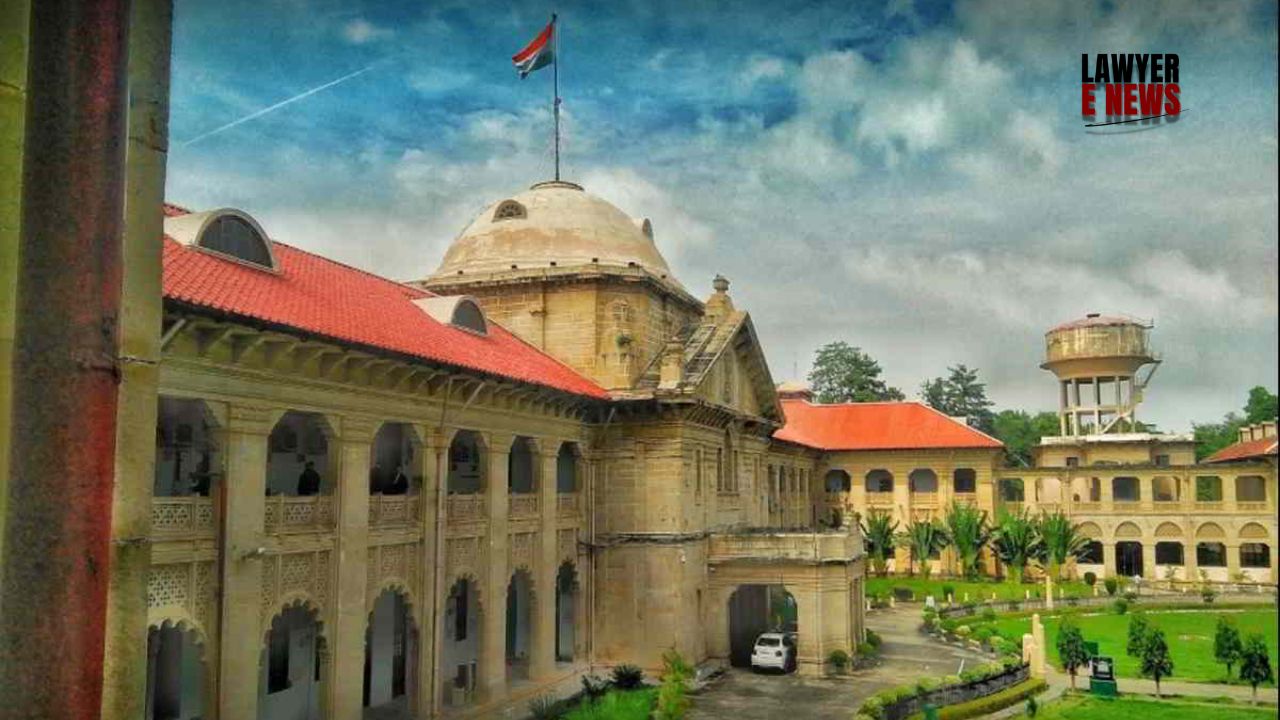-
by Admin
15 February 2026 5:35 AM



High Court dismisses petition challenging the rejection of Order VII Rule 11 application, emphasizes that prior suit’s dismissal in default does not preclude fresh suit on the same cause of action. The Allahabad High Court, in a recent judgment delivered by Justice Neeraj Tiwari, upheld the decisions of the lower courts rejecting an application under Order VII Rule 11 of the Code of Civil Procedure (CPC). The court clarified that the dismissal of a prior suit in default does not bar the plaintiff from filing a fresh suit based on the same cause of action if the plaint does not explicitly show such a bar.
The case involves the petitioner, Shri Om Prakash Upadhya, and the respondent, Shri Vijay Kumar. The respondent filed Original Suit No. 784 of 1999, which was challenged by the petitioner through an application under Order VII Rule 11 CPC, arguing that the suit was barred by law due to the dismissal of a previous suit (Original Suit No. 276 of 1992) on the same cause of action. The application was rejected by the Additional Judge (Senior Division) and the Additional District Judge. The petitioner then approached the High Court to set aside these orders.
The court highlighted that Order VII Rule 11(d) CPC mandates the rejection of a plaint only if, from the statements in the plaint, the suit appears to be barred by any law. In this case, the court noted that the plaint itself did not reveal any bar under Order IX Rule 9 CPC, which precludes a fresh suit following the dismissal of an earlier suit by default.
Justice Tiwari emphasized that the determination of whether a suit is barred must be made solely on the averments in the plaint, without considering the defenses raised by the defendant. “The averments in the written statement as well as the contentions of the defendant are wholly immaterial while considering the prayer of the defendant for rejection of the plaint,” the court observed.
The court relied on precedents from the Supreme Court, including the judgments in Madanuri Sri Rama Chandra Murthy v. Syed Jalal and G. Nagaraj v. B.P. Mruthunjayanna, reiterating that only the plaint’s allegations should be examined to determine if a suit is barred. Justice Tiwari quoted the Supreme Court, stating, “If on an entire and meaningful reading of the plaint, it is found that the suit is manifestly vexatious and meritless in the sense of not disclosing any right to sue, the court should exercise power under Order VII Rule 11, CPC.”
Justice Neeraj Tiwari remarked, “In the present case, from the perusal of plaint, it does not transpire that it is barred by any law. The plea of Order IX Rule 9 cannot be seen at this stage without filing of written statement by the petitioner-defendant.”
The Allahabad High Court’s judgment affirms the judiciary’s adherence to procedural fairness and clarity in civil litigation. By dismissing the petition, the court underscored that a plaint should not be rejected at the threshold unless it unequivocally shows that the suit is barred by law. This ruling provides significant guidance on the application of Order VII Rule 11 CPC and reinforces the principle that a plaintiff’s right to a fresh suit is preserved unless explicitly barred by statutory provisions.
Date of Decision: 31.07.2024
Shri Om Prakash Upadhya VS Shri Vijay Kumar
